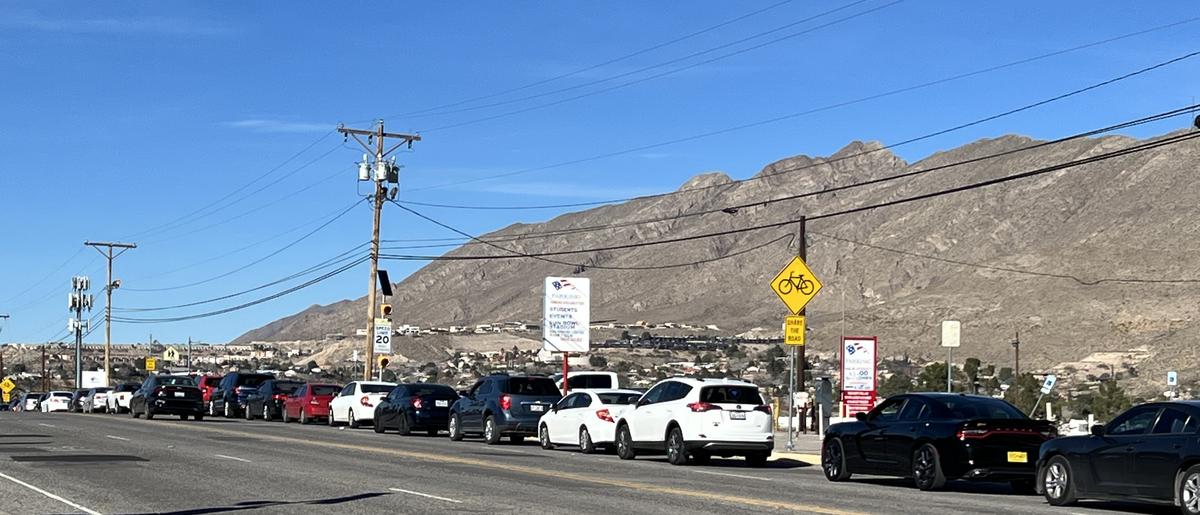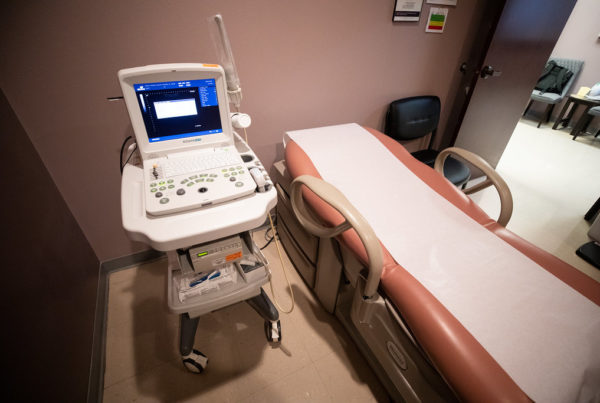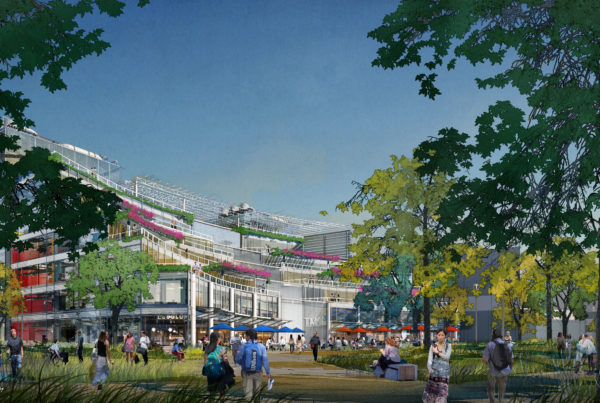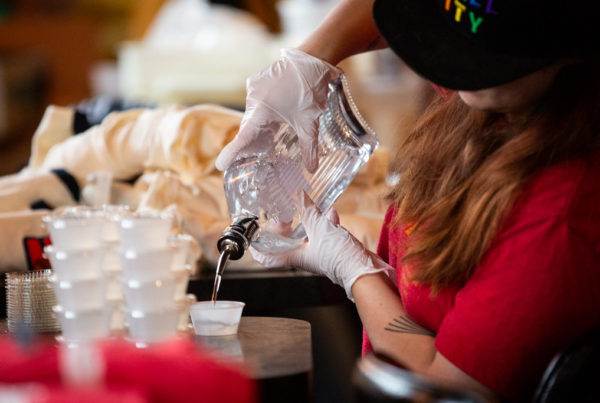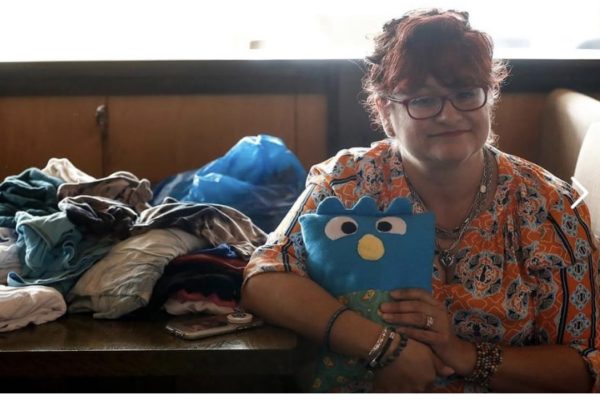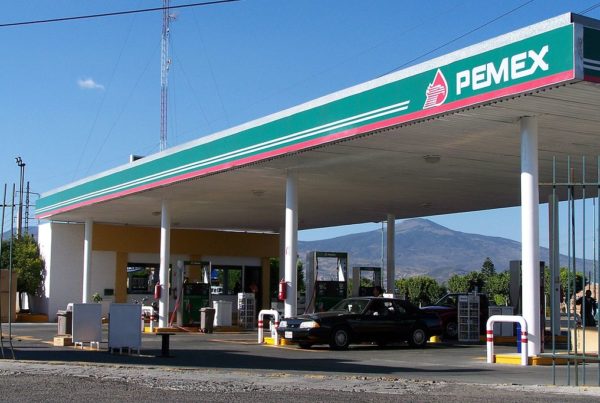Olivia Meza waited in a long line to get a COVID-test at a site near the University of Texas at El Paso. She was concerned after gathering with relatives during the holidays who later tested postitive.She’s vaccinated but worried about the highly contagious omicron variant.
“I think this line is ridiculous and they should have more locations and more staff,” Meza said.
Dallas mother Yessica Hernandez said her son started to feel sick just after the holidays. His school required a negative COVID-19 test before returning, but while Hernandez searched for at-home tests, she just couldn’t find any.
Eventually, she made her way to a city testing site, where she waited two hours in the car with both of her 9-year-old son and a 6-month old early last week.
“Having to wait in the car with both kids, you know, it can be frustrating,” she said on Monday. “Especially if one needs to be fed, and the other one just needs to be kept calm because obviously kids are anxious in the car if they’re waiting for that long.”
Hernandez was told results would reach her the next day. But five days later, the city still hadn’t reached out. She did eventually find a home test kit later in the week, which confirmed her son’s negative diagnosis.
Hernandez isn’t alone: Cities and counties across the state are seeing a growing demand for testing after the holidays that’s led to long lines, delayed results and test shortages as more and more people show symptoms of COVID-19 due to the rapidly spreading omicron variant.
More than 1.1 million tests have been administered across the state in the last week, according to the Texas Department of State Health Services. During the same period a month ago, the number of tests administered around the state totaled less than 680,000.
As of Monday, more than 11,000 people were hospitalized with COVID-19 in Texas, according to data from the Texas Department of State Health Services. That’s about 22% of the state’s hospital capacity.
In Harris County, local leaders called an emergency session to purchase tens of thousands of COVID-19 testing kits on Tuesday, the latest sign that a nationwide test shortage is impacting the state.
County commissioners voted unanimously to purchase up to 65,000 rapid antigen tests at a cost of more than $1.8 million. The bulk of those tests would go to public schools, with 5,000 tests being earmarked for county employees.
The problem, Harris County Judge Lina Hidalgo said, is going to be for the county’s public health department to find enough tests to purchase given the current high demand.
“They do not yet have them identified, because we’ve purchased all the ones we’ve been able to identify, but they’re trying to get them,” Hidalgo said. “And obviously if they don’t find that 65,000, the funds will not be spent.”
Tuesday’s emergency session came just one day after Hidalgo unilaterally approved the emergency purchase of 35,000 tests for the county, also at the request of county public health officials.
She justified the emergency purchase by citing skyrocketing demand and a rapidly shrinking supply: The number of tests available for purchase dropped by more than 15,000 over the weekend, Hidalgo said.
Bexar County commissioners took a similar vote on Tuesday, approving $1.3 million in federal COVID-19 relief funds to support local testing by Community Labs and Con Corazon San Antonio. County Judge Nelson Wolff urged both organizations to ramp up testing as local hospital beds fill up.
“People are scared I think,” he said. “They want to know if they got COVID, so if they do they can isolate and stay home and not pass it on to someone else.”
Wolff said he recently saw people in a line wrapped around buildings at an Alamo Community Colleges testing event.
Commissioners urged the testers to step up testing after hours and on weekends and in underserved areas of the city and county.
Meanwhile, San Antonio’s Metropolitan Health District announced six new free COVID-19 mass testing sites on Tuesday. Testing will be conducted on a walk-up basis, with no appointments necessary.
But while the city said it aimed to provide results within 24 hours, officials warned that there may be a delay due to a number of factors: increased testing volumes, severe weather and other ongoing disruptions.
Results may take up to three days, though the city expected the delays to be temporary.
Other Texas cities are seeing similar wait times for results.
Concerns about the highly contagious omicron variant created a post-holiday demand for COVID tests at a University of Texas at El Paso site last week, where Angela Lopez waited in line despite getting tested just recently.
It took a whole week to get her results, she said, and although she tested negative, she was back in line again after finding out three employees at the call center in which she worked tested positive.
Lopez said she’s felt sick since the day after Christmas, and that she takes testing seriously: her grandfather died from COVID in November of 2020, before vaccines were available.
“It feels like a cold but you never know,” she said. “Because that’s how it starts.”
A spokesperson for Exova, the company handling the UTEP site and other mega testing sites in El Paso, said a surge in demand after the holidays and a staffing shortage at the company led to a delay in providing results.
The company says it anticipates getting back to a quicker turnaround time in the next few days.
In the meantime, that means people will continue to anxiously await their results.
“Every variant that comes out I get more concerned, because I’m very close with my grandparents,” Meza said. “I worry about seeing them and their health. I just want to make sure I’m healthy enough to see them.”


